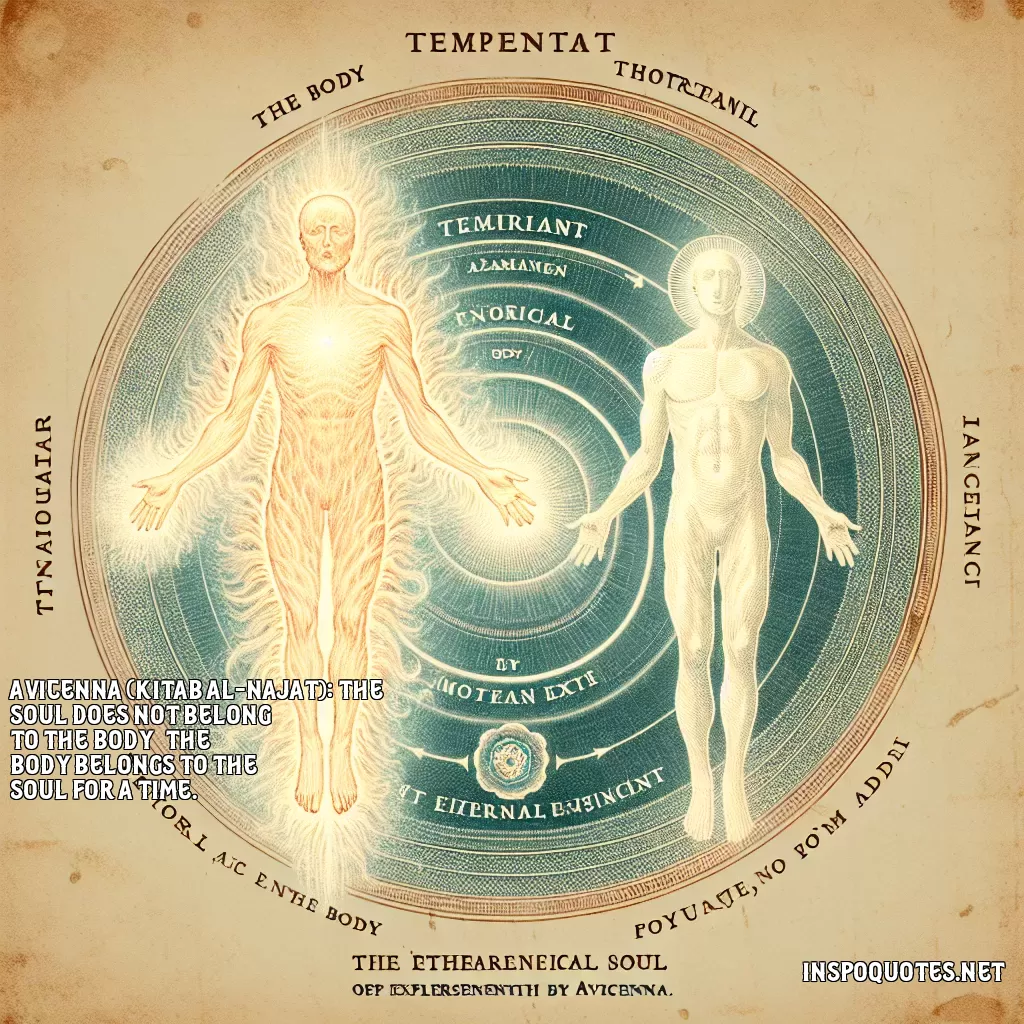
Avicenna (Kitab al-Najat): The soul does not belong to the body the body belongs to the soul for a time.
Author: Avicenna
👁️ 12 views

Avicenna (Kitab al-Najat): The soul does not belong to the body the body belongs to the soul for a time.
👁️ 12 views
This quote from Avicenna, also known as Ibn Sina, a Persian polymath of the Islamic Golden Age, encapsulates a profound philosophical view about the relationship between the soul and the body. Avicenna, in his works, often explored the nature of existence, consciousness, and the soul, drawing from both Islamic thought and ancient Greek philosophy. The assertion that "the soul does not belong to the body" suggests that the soul is an independent entity, intrinsically separate from the physical form. In many philosophical and religious traditions, the soul is considered to be the essence of a person, the core of identity that transcends the physical and temporal limitations of the body. Avicenna's statement aligns with this perspective, emphasizing the soul's primacy and autonomy. Conversely, saying "the body belongs to the soul for a time" implies a temporal and perhaps utilitarian relationship where the body is seen as a vessel or an instrument. The body serves the needs and purposes of the soul during its earthly existence. This view suggests that the body, with its limitations and temporality, is transient and secondary in importance to the soul, which outlasts it. This relationship can also be interpreted to mean that while the body provides the means for the soul to manifest in the physical world, it is not essential to the soul’s ultimate existence and purpose. The soul's journey is not confined to the lifetime of the physical body, hinting at the possibility of an afterlife or a continued existence beyond physical death, which is a common theme in both Islamic and other religious doctrines. In essence, Avicenna is reinforcing the idea that while our physical bodies are bound by the constraints of time and space, our souls are part of a larger, timeless continuum, hinting at a deeper, possibly spiritual journey that extends beyond our earthly lives.
Quote By: Avicenna
Avicenna, also known as Ibn Sina, was a Persian polymath born in 980 CE in what is now Uzbekistan. He is best known for his contributions to philosophy, medicine, and science, notably his influential work "The Canon of Medicine," which served as a standard medical text in Europe and the Islamic world for centuries. Avicenna's philosophical writings, which synthesized Aristotelian and Neoplatonic thought, laid important foundations for both Islamic philosophy and the Western philosophical tradition.
Bio added on: 2025-02-16 12:06:11